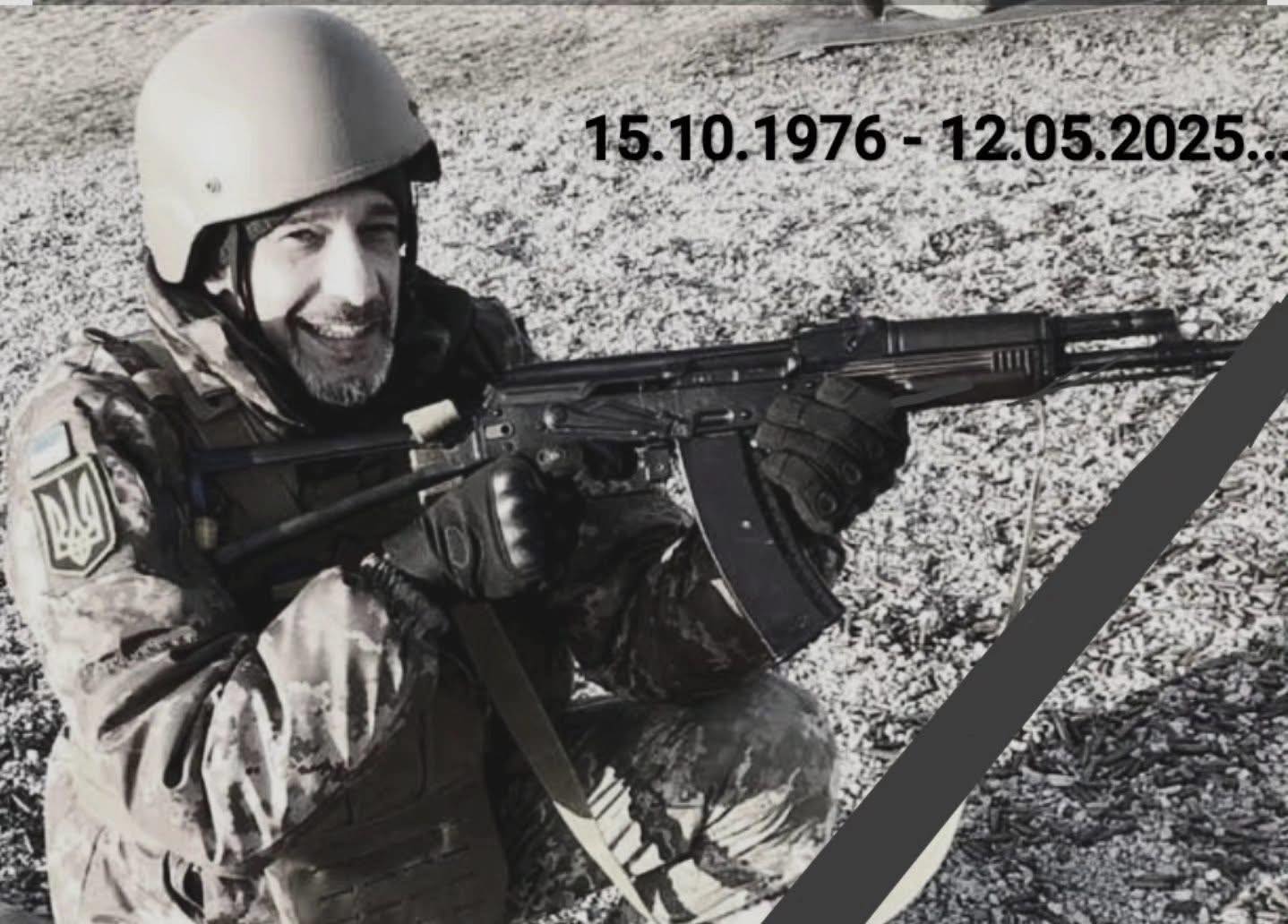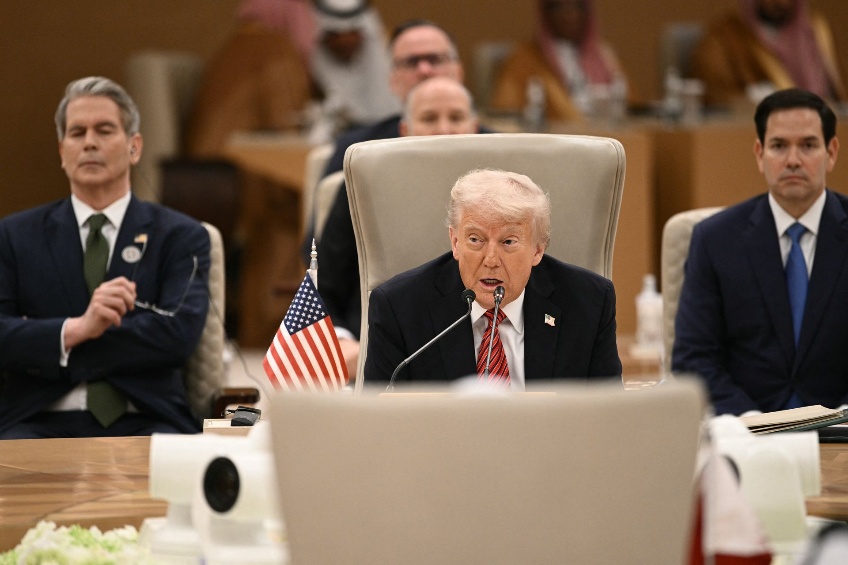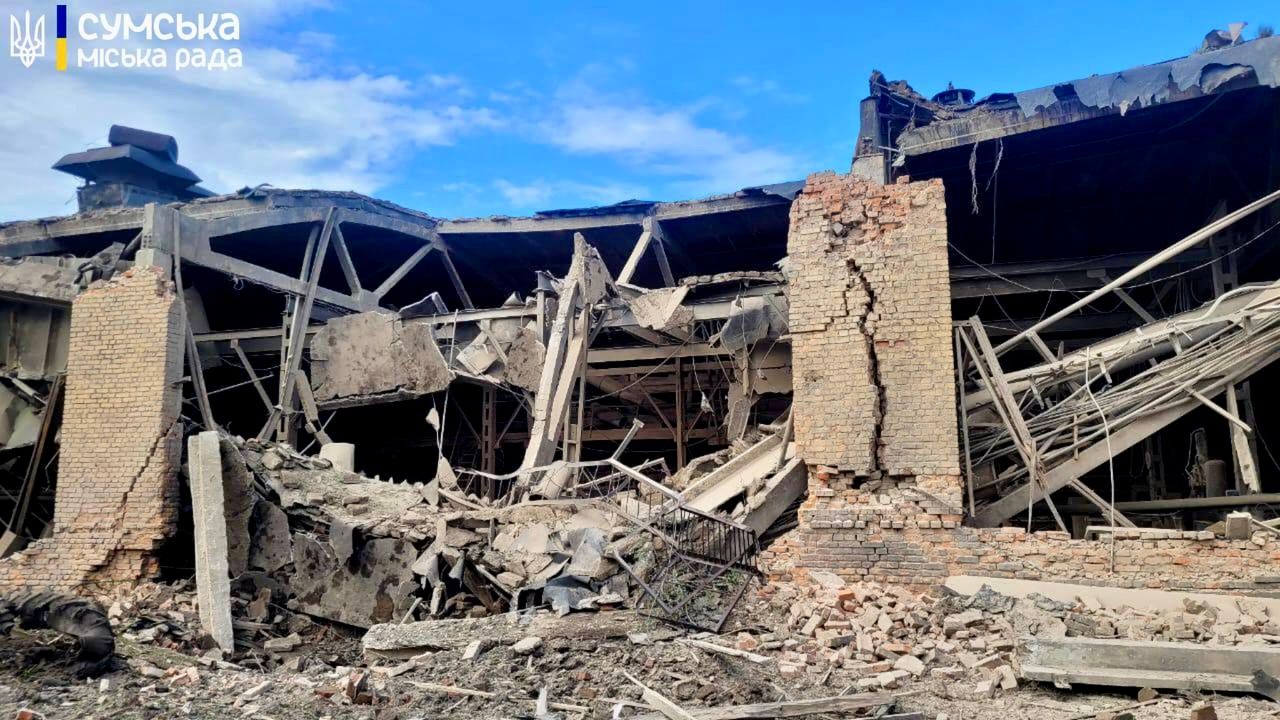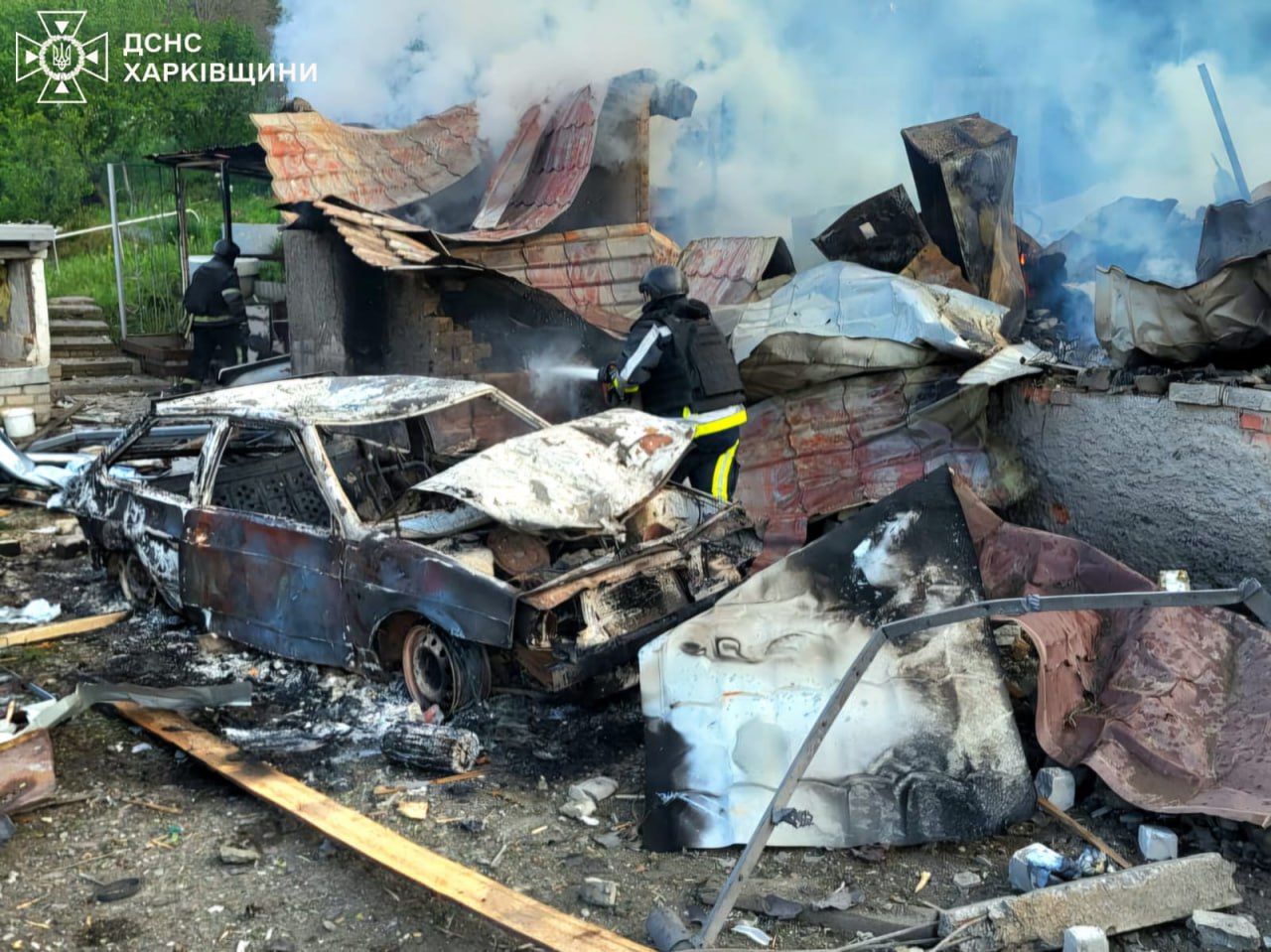As Russia Unveils Junior Delegation for Istanbul Talks Excluding Putin, Military Movements Accelerate While Germany Pledges to Build ‘Strongest Conventional Army in Europe’
Summary of the Day – May 14, 2025
The diplomatic fault lines sharpened dramatically today as the Kremlin finally revealed its delegation for tomorrow’s Istanbul peace talks—a list notably absent of Vladimir Putin or any top-tier officials, despite Ukrainian President Volodymyr Zelensky’s direct challenge to meet face-to-face. Meanwhile, military intelligence reports suggest Russia is marshaling forces for a major summer offensive even as peace talks loom. Germany’s new Chancellor Friedrich Merz vowed to build “the strongest conventional army in Europe,” while the EU approved its 17th sanctions package targeting Russia’s shadow oil fleet. Polish truckers ended their border blockade at the Yahodyn-Dorohusk checkpoint following a court ruling. Russian forces struck the northeastern city of Sumy, killing three people, while Ukrainian actor Maksym Nelipa was confirmed killed in action. On the battlefield, Ukrainian forces advanced near Pokrovsk while Russian troops gained ground around Kupyansk, Toretsk, Kurakhove, and Velyka Novosilka.

Ukrainian actor and soldier Maksym Nelipa, who was killed in action. (Facebook)
Moscow’s Delegation Revealed: Putin to Skip Istanbul Peace Talks
The Kremlin unveiled its delegation for the Istanbul peace talks scheduled for May 15, with President Vladimir Putin not attending despite direct appeals from Ukraine and international mediators. The Russian team will be headed by presidential advisor Vladimir Medinsky—who led the 2022 negotiations—accompanied by Deputy Foreign Minister Mikhail Galuzin, Military Intelligence Director Igor Kostyukov, and Deputy Defense Minister Alexander Fomin.
The delegation does not include Foreign Minister Sergey Lavrov or Putin’s foreign policy aide Yuri Ushakov, who were initially rumored to attend.
“I am waiting to see who will come from Russia, and then I will decide which steps Ukraine should take,” President Zelensky stated earlier in the day. “So far, the signals from them in the media are unconvincing.”
Reports Indicate Russia Preparing Major Offensive
The Financial Times reported on May 14 that Russia appears to be preparing a significant offensive in Ukraine, citing Ukrainian intelligence officials. According to the report, Russia is moving troops toward key positions on the front, indicating Moscow’s intent to escalate the war despite expected ceasefire talks.
The Ukrainian military reported 163 clashes at the front over the past day. The DeepState monitoring group reported that Russian forces recently advanced in Toretsk and near Pokrovsk in Donetsk Oblast.
Europe Tightens the Economic Vise: EU Approves 17th Sanctions Package
The European Union approved its 17th package of sanctions against Russia on May 14, primarily targeting Moscow’s “shadow fleet” of oil tankers used to circumvent Western restrictions. The measures list almost 200 vessels, 30 companies involved in sanctions evasion, and impose restrictions on 75 entities and individuals linked to the Russian military-industrial complex.
“This is a strong signal that the EU remains united behind the people of Ukraine,” European Council President Antonio Costa stated. The package also targets Russia’s hybrid operations, establishing legal bases for countering propaganda outlets and entities involved in the sabotage of underwater cables, airports, or servers.
European Commission President Ursula von der Leyen welcomed the agreement, saying: “This war has to end. We will keep the pressure high on the Kremlin.”
Germany’s Military Revival: Merz Pledges Strongest Army in Europe
German Chancellor Friedrich Merz pledged to build “the strongest conventional army in Europe” as the continent faces an increasingly hostile Russia. In his first major address to the Bundestag since his government was inaugurated last week, Merz vowed to “provide all financial means necessary” for the long-underfunded defense forces.
“This is appropriate for Europe’s most populous and economically powerful country,” Merz told parliament. “Our friends and partners also expect this from us. Indeed, they practically demand it.”
Merz warned that “anyone who seriously believes that Russia would be satisfied with a victory over Ukraine or with the annexation of parts of the country is mistaken.” His government has already cleared the way for a spending “bazooka” worth hundreds of billions of euros in extra funding for defense and infrastructure.
“Strengthening the Bundeswehr is our top priority,” Merz said. “Strength deters aggressors, while weakness invites aggression.”
Polish Truckers End Border Blockade Following Court Decision
Polish truckers lifted the blockade at the Yahodyn-Dorohusk checkpoint on the Ukrainian border on May 13, Ukraine’s State Border Guard reported. The protesters ended the blockade after the Lublin Court of Appeal upheld Dorohusk Mayor Wojciech Sawa’s decision to ban the rallies.
The blockade ended at 10:30 p.m. local time, with truck traffic in both directions now moving as usual. Polish truckers had started protests at the Yahodyn-Dorohusk checkpoint on May 12, limiting truck passage through the largest cargo customs post on the Ukrainian-Polish border to one vehicle per hour in each direction.
Overnight on May 13, the Yahodyn customs post processed only eight trucks. Some trucks had been waiting in line for over a day, according to Ukraine’s State Border Guard.
EU Plans to Increase Tariffs on Ukrainian Goods
The European Union plans to significantly increase tariffs on Ukrainian goods after the current duty-free deal lapses on June 6, the Financial Times reported on May 14, citing diplomatic sources. The move follows Poland’s call for the European bloc to adopt measures to protect European farmers.
The EU concluded a duty-free regime deal with Ukraine in 2022 to alleviate the Ukrainian economy amid the full-scale war and help the country ship out its goods, primarily agricultural products, to global markets.
The subsequent transition period would significantly reduce the tariff-free quota for Ukrainian agricultural products, according to the report.
U.S. Reportedly Opposes Zelensky’s Participation at NATO Summit
The United States is opposing President Volodymyr Zelensky’s participation at the upcoming NATO summit in The Hague, Italy’s ANSA news agency reported on May 14, citing diplomatic sources. If confirmed, the decision would mark the first time since Russia’s full-scale invasion that Zelensky is absent from a NATO summit.
According to ANSA, almost all allies have expressed surprise to Washington over this move. One Dutch official told the NOS broadcaster that denying Zelensky a seat at the table would be “a diplomatic disaster for the Netherlands that no speaker could justify.”
NATO foreign ministers are meeting informally in Antalya on May 14, where the issue could surface despite the session being designated as non-decision-making.
The Diplomatic Dance: Trump Sends Rubio to Turkey
U.S. Secretary of State Marco Rubio arrived in Turkey on May 14 ahead of the planned Ukraine-Russia talks, meeting with Ukrainian Foreign Minister Andrii Sybiha in the port city of Antalya. President Donald Trump will not be attending the negotiations, a U.S. official confirmed.

U.S. President Donald Trump addresses a meeting with Gulf leaders of the six-nation Gulf Cooperation Council (GCC) in Riyadh. (Brendan Smialowski / AFP)
Rubio and Republican Senator Lindsey Graham met with Foreign Minister Sybiha to discuss the upcoming talks. “We discussed in detail the logic of further steps and shared our approaches… It is critical that Russia reciprocate Ukraine’s constructive steps. So far, it has not. Moscow must understand that rejecting peace comes at a cost,” Sybiha said.
According to Washington Post reports, U.S. and European officials persuaded Zelensky to attend the talks despite Russia’s evasiveness about who it would send.
Brazilian President Contacts Putin About Istanbul Talks
Brazilian President Luiz Inacio Lula da Silva phoned Russian President Vladimir Putin on Wednesday, urging the Russian leader to attend the negotiations with Zelensky in Turkey, the Brazilian presidency said in a statement.
Lula, who was on an official visit to Moscow last week, “urged the Russian president to attend the negotiations” on ending the Ukraine war scheduled for Thursday, the statement said.
Putin himself had proposed direct negotiations between Moscow and Kyiv at the weekend, a counteroffer after Ukraine and Europe called for a 30-day full and unconditional ceasefire.
Ukrainian Actor Killed in Action on the Front Line
Ukrainian actor and TV presenter Maksym Nelipa was killed in action on May 12, his friends and family reported on May 14. Nelipa enlisted in the Armed Forces in March 2022, immediately after Russia’s full-scale invasion of Ukraine.
Actor Dmytro Oksin shared a screenshot of a Facebook post from Nelipa’s wife, Tamara, announcing the news of his death. Tamara Nelipa said that her husband had been killed on May 12 and that there was “little information about his death so far.”
Nelipa hosted and appeared on popular television programs, including the comedic “Diesel Show.” Many Ukrainian actors and artists have been killed on the front lines while defending their country against Russia.
The Changing Battlefield: Ukrainian and Russian Advances
Ukrainian forces recently advanced in the Pokrovsk direction, with geolocated footage indicating gains in western Myrne and central Lysivka, according to the Institute for the Study of War (ISW). Meanwhile, Russian forces made advances near Kupyansk, Toretsk, Kurakhove, and Velyka Novosilka.
In the Toretsk direction, geolocated footage showed Russian forces advancing north of the city and west of Yablunivka, as well as southwest of Zorya. Russian forces also recently advanced in southern Bahatyr west of Kurakhove and east of Zelene Pole in the Velyka Novosilka direction.
The Ukrainian Southern Defense Forces Spokesperson Colonel Vladyslav Voloshyn reported that Russian forces have concentrated assault units of four unspecified regiments in the Dnipropetrovsk-Zaporizhia Oblast border area.
Sumy Under Fire: Deadly Missile Strike on Industrial Site
Russian forces attacked the northeastern city of Sumy with a missile strike on May 14, killing at least three people and injuring nine, according to the Sumy Oblast Military Administration. The strike reportedly hit an industrial site, with two of the injured in extremely serious condition.
The air raid was announced at around 2:30 p.m. local time, while the explosion occurred around 2:50 p.m. Sumy Oblast, which borders Russia’s Kursk, Belgorod, and Bryansk oblasts, has experienced increasing Russian military pressure in recent weeks, with Moscow deploying small assault groups to infiltrate the region in an apparent bid to expand the front line.

Aftermath of the Russian missile strike on Ukraine’s city of Sumy. (Sumy Oblast Military Administration / Telegram)
Russia’s Massive Drone Campaign: 145 UAVs Target Ukrainian Infrastructure
Russian forces conducted a series of missile and drone strikes against Ukraine on the night of May 13 to 14. The Ukrainian Air Force reported that Russian forces launched one Iskander-M/KN-23 ballistic missile from occupied Crimea and 145 Shahed and decoy drones from multiple launch sites within Russia.
Ukrainian forces managed to down 80 Shahed drones over eastern, northern, western, and central Ukraine, while losing sight of 42 decoy drones. Russian attacks damaged civilian, critical, and industrial infrastructure in Sumy, Kharkiv, Odesa, Donetsk, Rivne, Ternopil, and Kirovohrad oblasts, with multiple casualties reported.
In Kharkiv Oblast alone, an 80-year-old man and a 70-year-old woman were killed, while eight others were injured in various settlements. In Donetsk Oblast, two people were killed in the village of Berestok, with seven others injured across multiple locations.

Russian forces targeted the Kupiansk district in Kharkiv Oblast, killing two people and injuring six others. (State Emergency Service)
A Judicial Milestone: Council of Europe Approves Special Tribunal for Russian Leadership
The Council of Europe approved the creation of a special tribunal to prosecute Russia’s top leadership for the crime of aggression against Ukraine, marking a significant milestone in international efforts to hold Putin and other senior officials accountable for launching the full-scale war.
European foreign ministers had given political approval to the tribunal during a meeting in Lviv on May 9. The tribunal will operate under the auspices of the Council of Europe and represents a victory for Zelensky, who has long advocated for such a mechanism to ensure Russian leaders face justice.
While war crimes, crimes against humanity, and genocide can be prosecuted against individuals at any level, the crime of aggression applies exclusively to state leaders responsible for planning and waging a war. The International Criminal Court has already issued arrest warrants for Putin and Maria Lvova-Belova for their roles in the forced deportation of Ukrainian children.
NATO’s Defense Spending Calculus: Working Toward Trump’s 5% Benchmark
NATO allies have begun working on a plan to increase defense spending, aiming to meet U.S. President Donald Trump’s call for each country to allocate 5% of GDP to their militaries by 2032. The development comes ahead of a NATO summit set to take place in The Hague in June.
NATO Secretary General Mark Rutte is reportedly pushing allies to commit to 3.5% of GDP for defense over the next seven years, plus an additional 1.5% for broader defense-related areas. Currently, 24 of NATO’s 32 members meet the 2% target, with Poland (4.12%), Estonia (3.43%), and the U.S. (3.38%) leading the way.
The alliance’s foreign ministers are discussing the defense spending framework during an informal meeting in Antalya, Turkey, coinciding with the planned Ukraine-Russia peace talks in Istanbul.
Germany and Poland Report Russian Interference Activities
Poland’s National Research Institute (NASK) has detected an alleged attempt to influence the upcoming presidential election through political advertisements on Facebook, the agency said on May 14. The disclosure follows a warning from Digital Affairs Minister Krzysztof Gawkowski, who on May 6 said Moscow was carrying out an “unprecedented” interference campaign.
According to NASK, the political ads appear to be funded from abroad and were not linked to any registered election committee. Over the past week, the accounts behind these ads reportedly outspent all official campaign teams, targeting candidates across the political spectrum.
Separately, German authorities have accused three Ukrainian nationals of an alleged Russia-orchestrated plot to send out parcels with explosives in Europe, Der Spiegel news outlet reported. Two of the suspects were reportedly detained over the weekend, and the third on May 13, during police raids in Germany and Switzerland.
The Human Cost Continues: Russian Attacks Kill at Least Four Civilians
Russian attacks against Ukraine killed at least four civilians and injured at least 26 others over the past day, according to regional authorities. In addition to the casualties in Sumy, Kharkiv, and Donetsk oblasts, Russian forces targeted 30 settlements in Kherson Oblast, injuring two people.
In Dnipropetrovsk Oblast, Russian artillery and FPV drones struck the Nikopol district, injuring two men. In Rivne Oblast, Russian attacks on civilian infrastructure left two people wounded.
The continued civilian casualties underscore the human toll of a conflict that shows no signs of abating, even as diplomats gather in Turkey to discuss the possibility of peace.
Looking Forward: Eve of Istanbul Talks
As diplomats and military officials prepare for Thursday’s negotiations in Istanbul, Russia and Ukraine are set to hold their first direct peace talks since the early days of the full-scale invasion in 2022. The talks come after Russian President Vladimir Putin rejected calls for a 30-day unconditional ceasefire and instead invited Ukraine to direct talks.
President Volodymyr Zelensky accepted the invitation and will represent Ukraine, while Russia will be represented by a delegation led by Vladimir Medinsky. It remains to be seen whether these talks will lead to any substantive agreements or pave the way for further negotiations to end the war.
